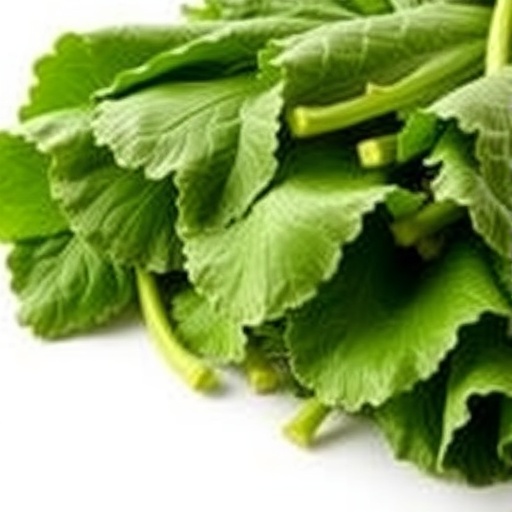A Growing Body of Evidence Links Vitamin K1 Intake to Reduced Atherosclerotic Vascular Disease Risk
Recent groundbreaking research conducted collaboratively by Edith Cowan University (ECU), the University of Western Australia, and the Danish Cancer Institute has uncovered compelling links between higher dietary intake of vitamin K1 and lowered risk of atherosclerotic vascular diseases (ASVDs). ASVDs are a major subgroup of cardiovascular diseases, which remain the leading cause of global mortality, predominantly through heart attacks and strokes. This meta-analysis sheds light on how a simple dietary change—consuming a cup and a half of leafy green vegetables daily—may have profound effects on vascular health, positioning vitamin K1 as a pivotal nutrient in cardiovascular disease prevention strategies.
The importance of cardiovascular diseases cannot be overstated, particularly in Australia where one person succumbs to these illnesses every 12 minutes. These stark statistics underscore the urgency for feasible preventative measures that can be widely adopted. The research led by ECU PhD student Montana Dupuy places vitamin K1—naturally abundant in leafy and cruciferous vegetables like spinach, kale, and broccoli—at the forefront of such interventions. Vitamin K1’s biochemistry has long been associated with roles in blood coagulation, but emerging evidence suggests it also exerts inhibitory effects on vascular calcification, a hallmark of atherosclerosis.
Vascular calcification is a pathological process characterized by the deposition of calcium phosphate crystals within the arterial walls, contributing to vessel stiffness and reduced elasticity. This calcific buildup compromises blood flow and escalates the risk for ischemic events. Vitamin K1 acts as a cofactor for the activation of matrix Gla-protein (MGP), a potent inhibitor of vascular calcification. By facilitating carboxylation and thereby activation of MGP, higher vitamin K1 intake appears to directly mitigate the progression of arterial calcification, offering a molecular basis for the observed cardiovascular benefits.
Beyond its vascular effects, vitamin K1 also plays a crucial role in musculoskeletal health. The same carboxylation processes enhance the function of osteocalcin, a bone matrix protein integral to bone mineralization and strength. This dual functionality adds another layer of public health significance, as populations at risk for cardiovascular diseases often simultaneously face musculoskeletal frailty, especially in aging demographics.
ECU Senior Research Fellow Dr. Marc Sim highlights that the simplicity of consuming a cup and a half of leafy greens daily makes vitamin K1 an accessible and practical approach for lowering cardiovascular risk. The study’s findings demonstrate that older women consuming approximately 30% more vitamin K1 than the current Australian Dietary Guidelines recommend experienced significantly reduced long-term incidence of ASVDs. Moreover, vascular ultrasound examinations revealed decreased carotid intima-media thickness among these women, a recognized surrogate marker for atherosclerosis severity.
This comprehensive meta-analysis synthesizes epidemiological data from numerous cohort studies, providing robust statistical power beyond the scope of individual investigations. It affirms dose-dependent relationships between vitamin K1 intake and vascular outcomes, underscoring the nutrient’s potential both in prevention and in attenuation of existing subclinical disease. By integrating biomarkers and clinical endpoints, the research presents a thorough picture of vitamin K1’s protective role.
The implications extend beyond individual dietary recommendations. At ECU’s Future Foods and Digital Gastronomy Lab, ongoing research builds upon these insights to formulate novel food products enriched with vitamin K1. These specialized meals aim to meet the nutritional demands of vulnerable populations, including aged care residents, who often experience malnutrition and elevated cardiovascular risk simultaneously. This translational approach bridges epidemiological findings with practical health interventions.
Dr. Liezhou Zhong, ECU Postdoctoral Research Fellow, emphasizes the importance of translating epidemiological data into tangible food solutions that can effectively deliver enhanced vitamin K1 intake at the community level. This innovation in functional foods holds promise not only for disease prevention but also for improving overall quality of life through optimized nutrition.
The study is meticulous in ensuring scientific integrity and transparency, with all authors declaring no conflicts of interest, thereby strengthening confidence in the findings. Published in the European Journal of Nutrition, this peer-reviewed work marks a significant milestone in nutritional cardiovascular research, encouraging further investigation and clinical trials to better define optimal vitamin K1 dosing, bioavailability, and its interactions with other nutrients.
In summary, this pioneering research foregrounds the critical yet underappreciated role of vitamin K1 in attenuating vascular calcification and ASVD risk. The convergence of molecular biology, epidemiology, and nutritional science delivers a compelling message: integrating a modest amount of leafy green vegetables daily can yield measurable cardiovascular benefits, especially for older women. As public health systems grapple with the burden of cardiovascular diseases, vitamin K1 emerges as a promising, cost-effective, and natural component of comprehensive prevention strategies.
This work not only advances scientific understanding but also empowers individuals and communities with actionable knowledge. Future research building on these findings promises to refine dietary guidelines, enhance food product development, and ultimately, reduce the global impact of cardiovascular diseases through nutrition-based interventions.
Subject of Research: People
Article Title: Higher vitamin K1 intakes are associated with lower subclinical atherosclerosis and lower risk for atherosclerotic vascular disease-related outcomes in older women
News Publication Date: 3-May-2025
Web References: http://dx.doi.org/10.1007/s00394-025-03686-x
References: The study is published as a meta-analysis in the European Journal of Nutrition on 3-May-2025.
Keywords: Human health, Dietetics, Public health




